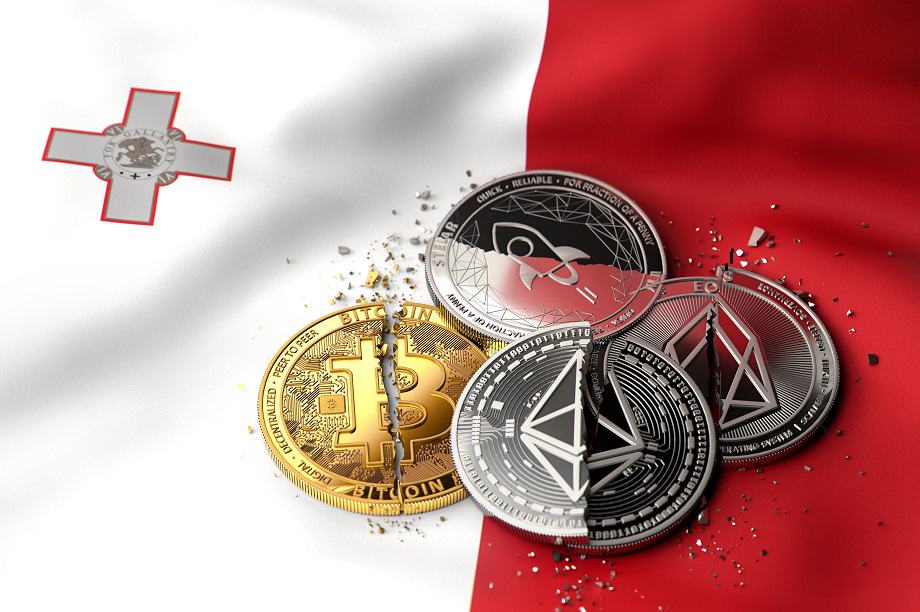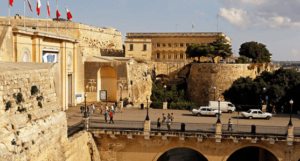
Bitcoin, Ethereum, Cardano or other crypto-currencies lover, this article is bound to interest you. We will explain why so many crypto currency traders are flocking to Malta from all over the world.
To explain everything, we interviewed Ali Zarzouri, founder of Malta Conseils, the expert in the field of accompanying traders, influencers and entrepreneurs in general for their private and professional installation in Malta.
As you’ve probably heard or read somewhere, Malta is a country that is particularly at the forefront in terms of regulation for all transactions involving digital assets and more specifically crypto-currencies.
Since 2018, Malta has introduced very innovative tax guidelines regarding all transactions involving digital assets and crypto-currency.
Before we present all the advantages of malta for crypto-currency traders, we need to clarify the distinction between coins and tokens:
The pieces (corners)
Coins are considered by Maltese law as a means of payment similar to ordinary means of payment. To be considered as a coin, a cryptocurrency should especially not have characteristics comparable to conventional stocks or bonds. The value of a cryptocurrency should not be tied to an exchange for any goods or services.
Tokens
The tokens can be financial tokens (also called security tokens) or utility tokens (also called utility tokens).
Utility tokens are normally used as a means of financing certain projects. It is a kind of “coupons” that will be exchanged for services that a company provides or will provide. These tokens are usually quickly issued and poorly regulated and have a highly speculative value.
Security tokens (financial tokens): digital assets very similar to stocks, bonds, etc. The value of a security token comes from a tangible asset that can be traded and is fully regulated. Companies issuing digital assets must submit all documentation and collateral for these assets.
Before we introduce you to the specific benefits for cryptocurrency holders and traders, we remind you of some basic Maltese tax benefits for expats that are useful to know in order to understand the following:
- No tax on capital gains realized abroad
- The remittance basis: only income earned in Malta or repatriated to Malta is included in the annual personal tax return.
- No wealth, inheritance or gift tax
- No property tax, no housing tax
- If you hold your principal residence for 3 years, you pay no capital gains tax when you resell your property. This is important for those who are releasing some of their digital or financial assets for real estate investment purposes.
- Non-Maltese can set up a corporate structure that allows them to benefit from an effective tax rate of 5% on profits.
The benefits of Malta for cryptocurrency investors and traders:
The Maltese tax authorities have taken a relatively simple approach to the taxation of crypto-currencies:
“All previous income and capital principles and case law are by analogy applicable to transactions involving crypto-currencies.”
If a coin is involved in the transaction, the tax law treats it in the same way as ordinary currency and the same questions arise: the intent behind the transaction, the status of the parties, the type or nature of the transaction, etc. We will see later how these elements will be analyzed
All profits from the coin exchange are treated in the same manner as ordinary fiduciary exchange profits would be. When a company holds shares in its business operations, any gains or profits are taxed as income. All coins rewarded by mining activities are also treated as regular income.
On the other hand, if an individual realizes a capital gain from the long-term holding of a coin, and does not do so in the course of his or her regular business activity, no income or capital gains tax should arise.
The borderline is quite delicate, the analysis of a tax specialist would be recommended to choose the most favorable framework for your own transactions.
All expenses incurred will be considered expenses and therefore deductible for income tax purposes. This is a definite advantage for those who often exchange or bet their coins.
With respect to security tokens, their treatment is similar to traditional stocks and bonds for income tax purposes. Profits are considered as interest or dividends. Therefore, all exemptions provided for in the tax legislation for regular dividend and interest payments are applicable. For example, a non-resident who receives income simply by virtue of possessing certain items will be able to benefit from the exemption applicable to non-residents who have received dividends in Malta.
To have a thorough and personalized analysis of your situation, Ali offers a Visio consultation that allows you to ask all your questions and choose an optimal solution for you. Click here to learn more
Investor trader or professional trader?
Malta provides tax incentives in both cases but it is important to know in which category you fall in order to implement the most favorable solutions for you while being perfectly in order.
Here are the most important questions a tax professional would ask to determine the right solution for you:
- Is this a “one-time” operation or one that could be considered commercial and replicative?
- Is the transaction related to the taxpayer’s ordinary business activity?
- What is the purpose of the transaction? Is the item/counterparty something that is often traded and speculated on?
- How did the transaction go?
- How was the transaction financed?
- What was the buyer’s intention?
Depending on your answers, your earnings may be covered by special provisions of Maltese law; either in terms of income tax for individuals or as tax incentives for companies and entrepreneurs.
ICOs in Malta
ICOs(Initial Coins Offering ) are entities through which tokens are generated and distributed to the public. Indeed, unlike cryptocurrency coins that are created through mining by miners, tokens whether financial or utility are created through ICOs.
Malta also has a very advantageous policy regarding these entities. Indeed, they are considered as ordinary capital raising by companies, they do not generate any tax obligations for any of the parties involved, seller or buyer. You will therefore be able to obtain tokens through ICOs without being subject to income tax.
However, if the transaction involved the sale of utility tokens in exchange for services or goods, the profits generated by the transaction would be taxable.
Provisions concerning the VAT of cryptocurrencies, ICOs and blockchain
This is a rather complicated issue and deserves to be dealt with precisely on a case by case basis by a specialist. However, here are the main points to remember:
VAT (value added tax) is also a tax aspect on which the country of Malta offers advantages for cryptocurrency traders. Indeed, transactions in which coins or tokens are used as a means of payment are exempt from VAT. In other words, in the country, you can make online purchases and payments without being subject to VAT.
Thus, buyers can pay much less in Malta than in other countries by using coins or cryptocurrency tokens to do so. This is not only important for traders, but also for ordinary users.
This action was put in place in the sense of encouraging the lambda buyer to use cryptocurrency. Who wouldn’t be interested in a tax exemption on their purchases? Thanks to this approach, more and more novices are getting cryptocurrency in the country to make their purchases.
In general, mining operations, or cryptocurrency creation, are considered entirely outside the scope of VAT. As a result, miners are exempted from VAT in relation to their cryptocurrency mining activities.
This is a definite advantage for them, especially knowing that this activity only guarantees an income for a few lucky ones. Thanks to this provision, the number of minors in the country is increasing and they even come from abroad to benefit from it.
However, it is important to note that VAT will have to be paid by the minor in some cases. In fact, if coins are received by the latter in return for services that clearly identify the beneficiary, VAT will have to be paid by the minor who becomes a trader in this case.
Activities considered crypto exchanges such as brokerage, trading, intermediation and trading of cryptocurrency assets are exempt from VAT. However, platforms for selling, buying or exchanging cryptocurrency are considered to offer platform services and therefore subject to VAT.
In conclusion
We must remember that we have talked about the advantages of Malta for cryptocurrency traders. Thus, we can confidently conclude that Malta is a conducive and advantageous country not only for trading but also for buying and using cryptocurrency coins and tokens. It offers tax advantages to encourage residents and also non-residents to use this new form of currency.
Each case is particular and requires a tailor-made treatment but there are real solutions to optimize your cryptocurrency earnings in Malta
It is advisable to get advice from a specialist to determine the most suitable configuration for you depending on how you want to trade your cryptocurrencies.
For more information on the subject, you can contact the specialists at Malta Consulting .




















